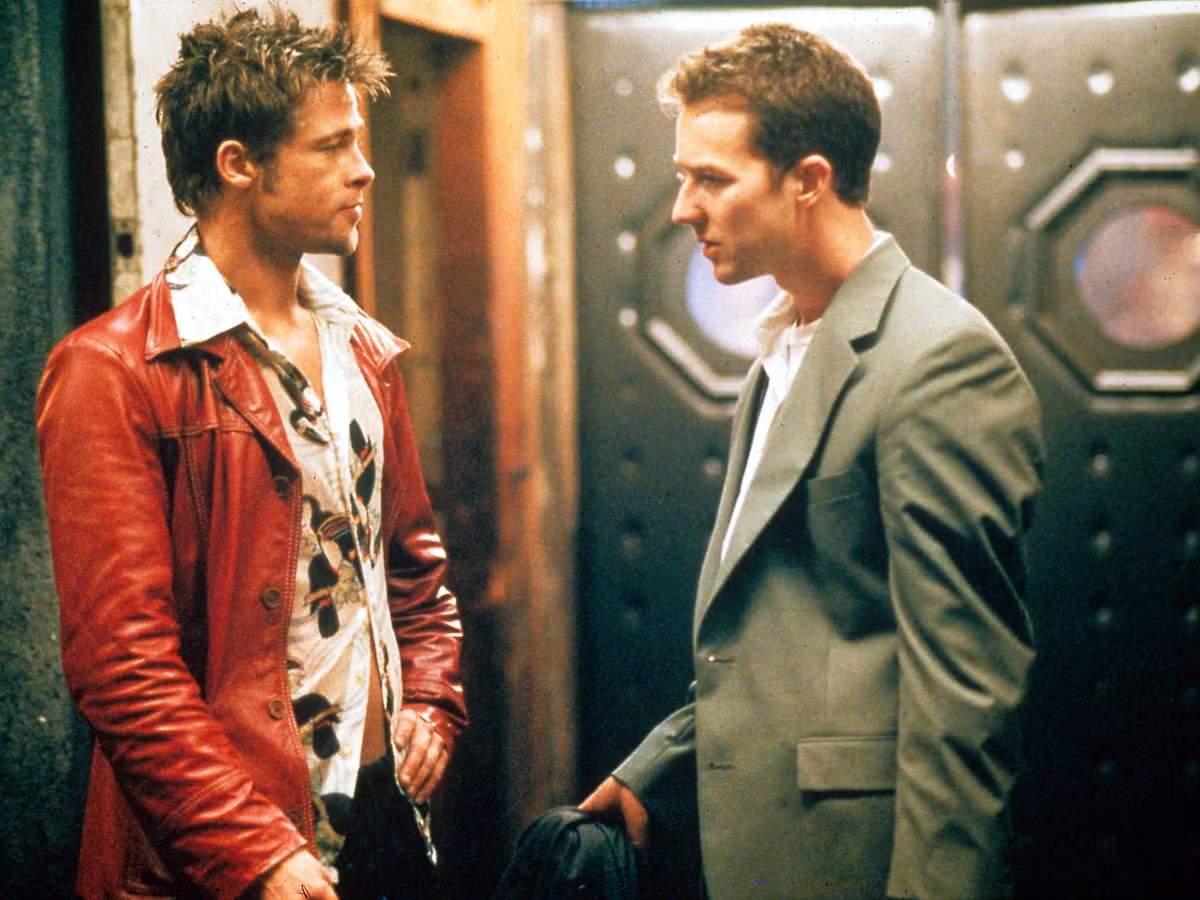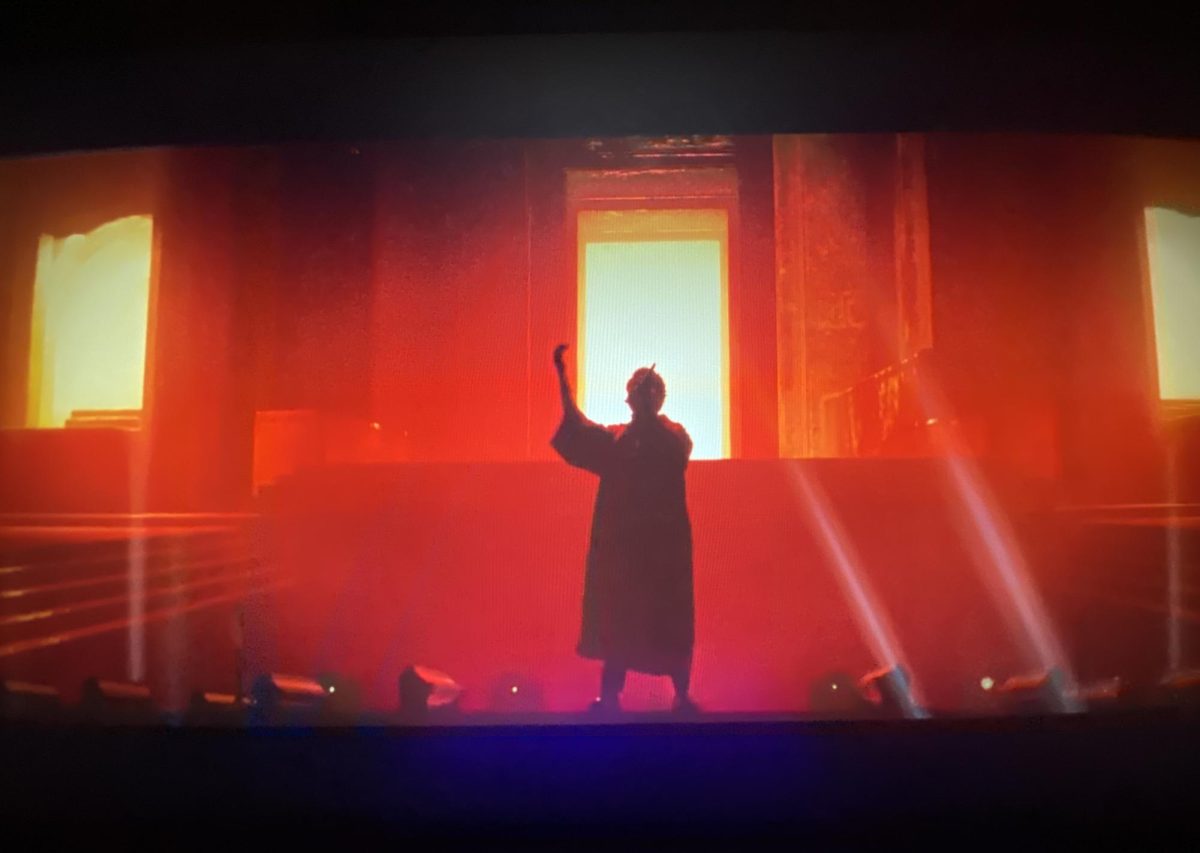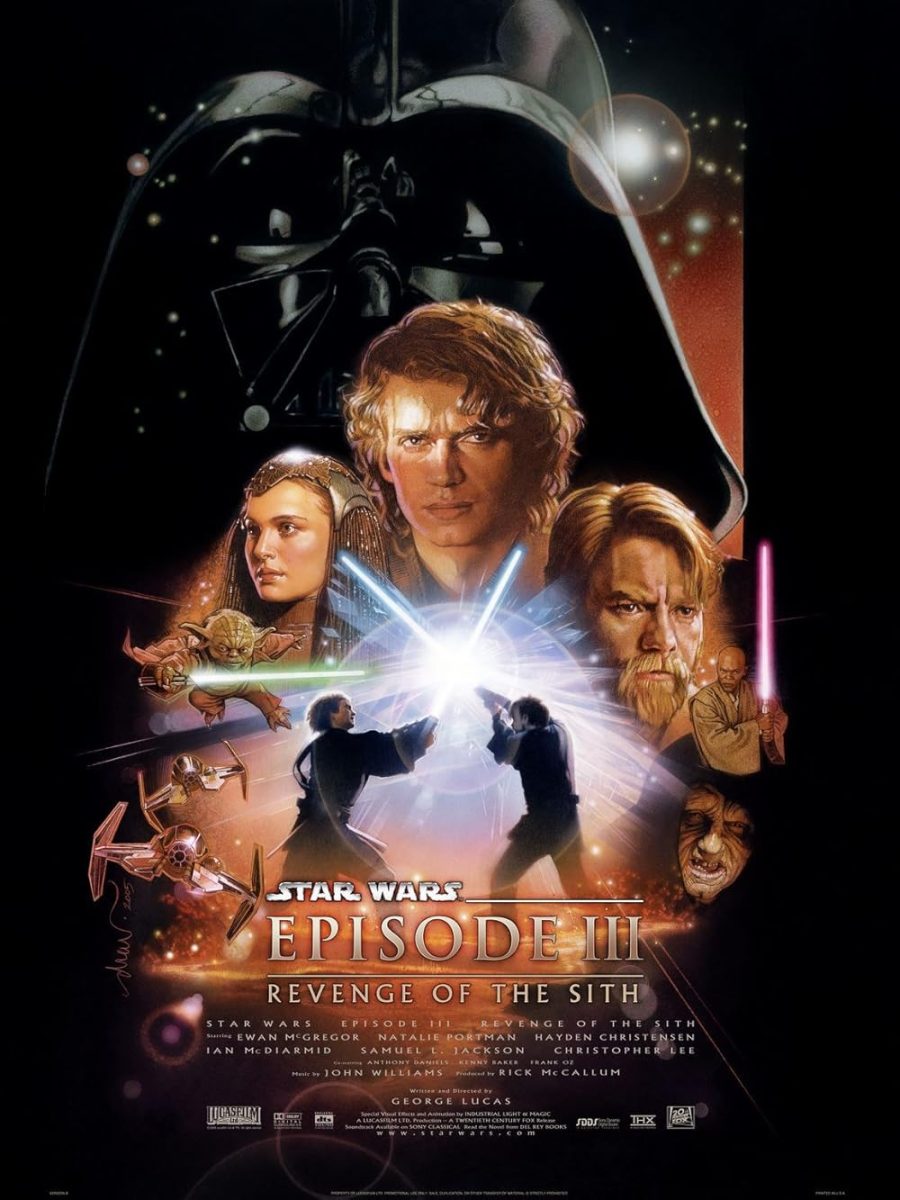David Fincher’s Fight Club is a defining movie released at the cusp of the 21st century. A controversial film, it has captivated the American audience since 1999, quickly becoming a cult classic that sparks commentary even 25 years after its premiere. As of late, Fight Club has become increasingly more relevant, catalyzing discussions about consumerism and masculinity in the digital world.
Criticizing Consumerist Culture
“The things you own end up owning you.”
Fight Club has been broadly interpreted as a criticism of post-Depression consumerist culture and late-stage capitalism. The Narrator, played by Edward Norton, is a middle-class cog in the machine working as a car insurer. His earnings channel directly into the pockets of multi-billionaire corporations (namely IKEA). His character studies the materialistic nature of a society raised in the aftermath of a national financial crisis. In contrast, the militia group Project Mayhem, led by Tyler Durden, aggressively targets capitalist institutions. They instead destroy credit card companies to free the working class from debt. By rejecting material possessions, Durden believes economic collapse will lead to a ‘global equilibrium.’ His radical anti-consumerist operations rebuff the cycle of superficial desires and mindless consumption. It forces confrontations with the Narrator’s futile attempts at finding value in his life through material accumulation.
Role Model for Masculinity
“I want you to hit me as hard as you can.”
Tyler Durden is an icon of the masculine stereotype: he engages in bare-knuckle fistfights and views women as second-class. Moreover, he laments the lost masculinity in capitalism, claiming class structures emasculate men, turning them into subservient, docile workers. His cult-like following consists entirely of men with these shared notions. In fact, Fight Club has been misconstrued because of Durden’s magnetism. He sells the dream of freedom from capitalism through punchy one-liners and hypermasculine charm. His doctrines are intriguing through charisma but hold no intrinsic values that work towards real political reform. He is often labeled as an anti-capitalist figurehead, goading the Narrator into terrorist activities under the guise of anti-establishment. Yet Project Mayhem’s response through riots and vandalization is juvenile, displaying no well-structured attempts at deconstruction of the system they struggle against. Project Mayhem is a siren song for self-proclaimed victims of an emasculating society, cathartic in its ‘rebellion’ against a feminized institution they believe strips them of dignity. Critics argue that Fight Club glamorizes the brutality of violent anger towards the system, but Fincher maintains that he simply holds a mirror to it: At heart, Fight Club is a dramatic satirization of how masculinity reacts to capitalism, and Tyler Durden becomes the poster boy of a movement fueled by misplaced fury at an institutional system.
God is dead, a Nietzschean philosophy
“If you’re male and you’re Christian and living in America, your father is your model for God.”
Firstly, Tyler Durden follows a Nietzsche-esque philosophy, breeding ideas echoing Übermensch, a post-God, post-nihilistic superman unbound by class and of good and evil. According to this philosophy, an übermensch surpasses traditional social values to create their own purpose. Furthermore, Nietzsche claimed that by ‘rising above’ modern society, one could achieve self-actualization. Durden becomes the übermensch in Fight Club: he disregards the set moral compass of society in his fight against capitalist ideologies and encourages his followers to break the established status quo in destructive ways. He sees conflict in the material world as a form of will to power—a way to transcend the limits imposed upon him by a restrictive society. Nietzsche critiqued nihilism as a self-reflection of humanity in its recesses, facing the conformity brought on by the rise of mass culture. Similarly, Durden scorns status-chasing compliance with corporate careerism, thinking true freedom comes from self-destruction, not enlightenment. By abstaining from worldly possessions and indulging in individual agency, he transcends social conventions, turning him into a godlike figure in the eyes of his followers. Or, as the Narrator says, “In Tyler We Trust.”





















